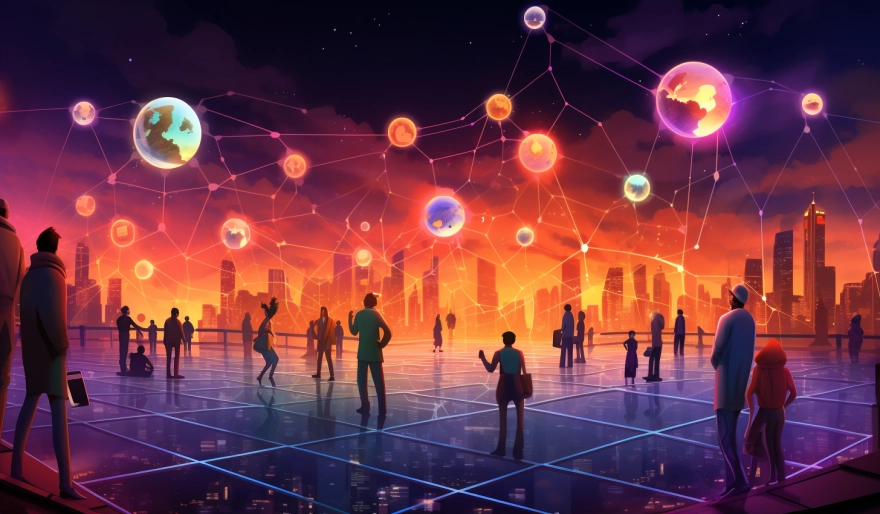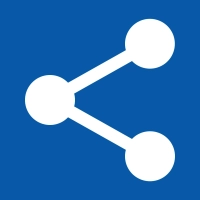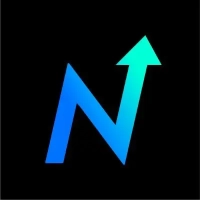Revolutionizing Social Media: The Power of Decentralized Social Networks
In the age of social media dominance by platforms like Facebook and Twitter, the concept of decentralized social networks is gaining attention and momentum. These networks, powered by blockchain technology, offer users a new level of control and security over their data, challenging the centralized models of traditional social media platforms. This blog will delve into the world of decentralized social networks, exploring their potential to revolutionize the way we connect and share online. November 16, 2023 15:53
Understanding the concept of decentralized social networks
Decentralized social networks, as the name suggests, operate on a decentralized architecture, eliminating the need for a central authority to oversee user interactions and data storage. Instead, these networks utilize blockchain technology to distribute control and ownership among users.
In this decentralized model, each user maintains control over their data, allowing them to decide what information to share and with whom. Additionally, the use of blockchain technology ensures transparency and immutability, reducing the risk of data breaches and manipulation.
Unlike traditional social media platforms, decentralized networks offer users a more private and secure environment. By eliminating the reliance on a central authority, these networks prevent the accumulation of user data and limit the potential for surveillance or exploitation.
Stay tuned for the next section, where we will explore the benefits and challenges of decentralized social networks and how they could reshape the landscape of social media as we know it.
The advantages of decentralized social networks over traditional platforms
Decentralized social networks offer numerous advantages over traditional platforms, making them a compelling option for users seeking a more secure and private online environment. One significant advantage is the increased control users have over their data. In traditional platforms, user data is stored and controlled by a central authority, leaving it vulnerable to breaches and misuse. In contrast, decentralized networks empower users to maintain ownership of their data, deciding who can access it and how it is shared.
Another advantage is the increased transparency provided by blockchain technology. As decentralized networks utilize blockchain for data storage and verification, every transaction and interaction is recorded and stored on the blockchain's public ledger. This transparency fosters trust among users, as it ensures the integrity of the network and reduces the potential for manipulation.
Furthermore, decentralized networks offer greater resistance against censorship and surveillance. Without a central authority controlling the platform, there is no single point of control for governments or other entities to restrict or monitor user activity. This freedom allows users to express themselves without fear of repercussions or restrictions.
In the next section, we will delve deeper into the challenges that decentralized social networks face, including scalability and user adoption. We will also explore how these networks could potentially reshape the landscape of social media as we know it.
Examples of successful decentralized social networks
While decentralized social networks are still relatively new, there are already a few notable examples that have gained traction and showcased the power of this innovative concept.
One such example is Mastodon, a decentralized microblogging platform that offers an alternative to the centralized nature of platforms like Twitter. Mastodon operates on a federated model, allowing multiple servers, or "instances," to form interconnected communities. Users have the freedom to join the instance that aligns with their values, while still being able to interact with users from other instances. This decentralized structure ensures that there is no single point of control or censorship, giving users a more democratic and inclusive online experience.
Another successful decentralized social network is Steemit, a platform that combines social media and blockchain technology to reward users for their contributions. Steemit allows users to create and curate content, and the platform's underlying blockchain architecture ensures transparency and fairness when it comes to distributing rewards. By incentivizing user participation, Steemit has managed to create a vibrant and engaged community that fosters creativity and collaboration.
These examples demonstrate the potential of decentralized social networks to provide users with more control, transparency, and freedom. As more individuals embrace these platforms, we can expect to see the social media landscape evolve significantly, benefiting users in ways we could not have imagined before.
Challenges and potential drawbacks of decentralized social networks
While decentralized social networks offer numerous benefits, they also come with their fair share of challenges and potential drawbacks. One of the main concerns is the lack of widespread adoption and awareness. Since these networks are relatively new, they may not have the same level of user base as their centralized counterparts. This can lead to a limited pool of users and potentially less content and engagement.
Another challenge is the complexity of navigating through different instances or servers. While the idea of joining a specific instance that aligns with one's values is appealing, it can also lead to fragmentation and difficulty in finding and connecting with a diverse range of users.
Additionally, the decentralized nature of these networks can make it more challenging to combat issues such as misinformation, abuse, and hate speech. Without a single governing body, moderation efforts rely heavily on individual instances and their administrators, which may vary in terms of policies and enforcement.
In conclusion, while decentralized social networks have the potential to revolutionize the way we interact online, they also face challenges related to adoption, complexity, and moderation. Overcoming these hurdles will require collaboration and innovation from both developers and users to create a truly transformative decentralized social media landscape.
The future of social media: Is decentralization here to stay?
The concept of decentralized social networks has gained significant attention in recent years, but the question remains: is this just a passing trend or a lasting revolution in the world of social media? While only time will truly tell, the signs point towards a promising future for decentralized networks.
One key factor that suggests decentralization is here to stay is the growing disillusionment with centralized social media platforms. Many users are becoming increasingly aware of the downsides and limitations of these platforms, including issues surrounding privacy, data ownership, and content moderation. This dissatisfaction opens doors for decentralized alternatives that prioritize user control and transparency.
Furthermore, the advancements in blockchain technology, which underlies many decentralized networks, have shown immense potential for various applications beyond cryptocurrency. This technology provides the necessary infrastructure for secure, peer-to-peer interactions and eliminates the need for intermediaries, making decentralization more feasible than ever before.
In addition, the decentralized nature of these networks aligns with the principles of the open internet and the spirit of innovation. With decentralized platforms, users have the power to shape their online experiences, foster communities based on shared interests, and engage in meaningful conversations without third-party interference.
As developers continue to improve the usability and accessibility of decentralized social networks, and as more users recognize the value they provide, it is likely that we will witness a gradual shift towards a more decentralized social media landscape. While there are still challenges to overcome, the potential for transformative change is undeniable.
In conclusion, while the future of social media remains uncertain, decentralized networks offer a promising alternative to the status quo. As users become more aware of the limitations of centralized platforms and as technology advances, the demand for decentralized social networks will continue to grow. The revolution has begun, and it's up to us to drive the change towards a more open, transparent, and user-centric online world.
Conclusion: Embracing the revolution in social media
As we conclude this discussion on the power of decentralized social networks, it is clear that we are on the brink of a revolution in the world of social media. The dissatisfaction with centralized platforms and the advancements in blockchain technology have paved the way for decentralized alternatives that prioritize user control, transparency, and privacy.
Embracing this revolution means recognizing the potential for a more open, inclusive, and democratic online landscape. It means understanding the power we have as users to shape our own online experiences and foster communities based on shared interests.
While there are still obstacles to overcome and challenges to be faced, the demand for decentralized social networks will only continue to grow. It is up to us, as individuals and as a collective, to drive this change and push for a more user-centric social media environment.
So let's embrace the revolution, explore the possibilities offered by decentralized networks, and work towards a more transparent and empowering future for social media. Together, we can shape the next era of online interaction.
User Comments (0)
Popular DeSo Apps










